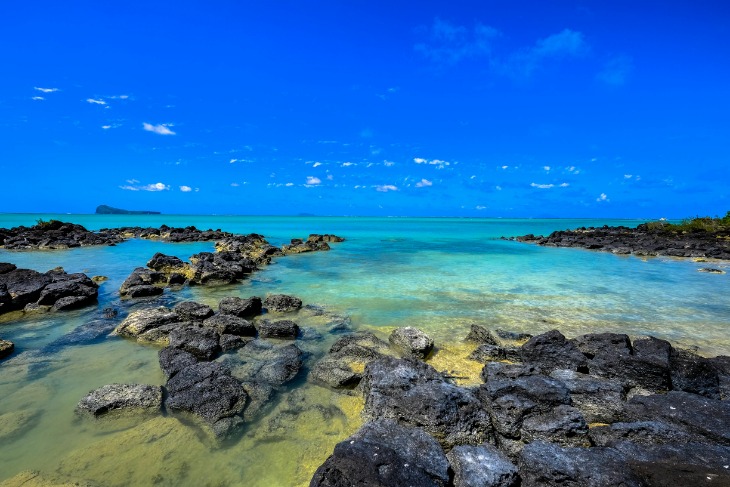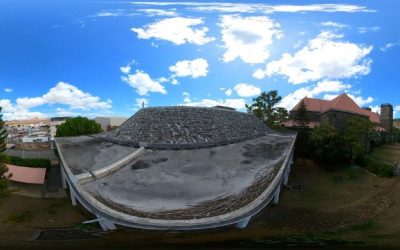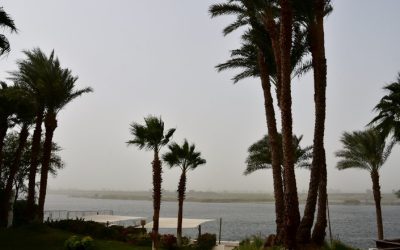Geography of Africa and Mauritius
Africa is a vast continent known for its diverse landscapes, ranging from deserts and savannas to lush rainforests and mountainous regions. It is the second-largest continent, home to a rich variety of cultures, languages, and ecosystems. Mauritius, an island nation located in the Indian Ocean off the southeastern coast of Africa, is renowned for its stunning beaches, coral reefs, and volcanic landscapes. Despite its small size, Mauritius holds a unique place in African geography as a vibrant island paradise with a blend of cultural influences.
Continent Overview
Africa is the second-largest continent on Earth, covering about 30 million square miles and known for its diverse landscapes, encompassing deserts, savannas, rainforests, and mountains. It is home to a vast array of climates and ecosystems, supporting numerous unique species and cultures. The continent is situated between the Indian Ocean and the Atlantic Ocean, with the Mediterranean Sea to the north and the Red Sea to the northeast.
Mauritius is a small island nation located in the Indian Ocean, east of the coast of Africa. It is renowned for its stunning beaches, coral reefs, and lush volcanic landscapes. Despite its modest size, Mauritius has a rich multicultural heritage influenced by African, Indian, Chinese, and European cultures. The country’s economy is largely driven by tourism, sugar production, and financial services, making it a significant regional hub in the Indian Ocean.
Overall, Africa’s vast and varied geography plays a crucial role in shaping the continent’s diverse cultures, economies, and environments, while islands like Mauritius exemplify the unique natural beauty and cultural richness found within the broader Afro-Indian Ocean region.
Geographical Features of Africa
Africa is a vast continent characterized by its diverse geographical features, ranging from expansive deserts to lush rainforests and high mountain ranges. It is home to the Sahara, the largest hot desert in the world, which spans several countries in North Africa. The continent also features the Congo Basin, one of the world’s largest rainforests, supporting rich biodiversity. Africa’s highlands include the Ethiopian Highlands and the East African Rift Valley, which contains some of the world’s most active volcanoes and deep lakes like Lake Victoria and Lake Tanganyika. Coastal regions are often characterized by fertile plains and important port cities, facilitating international trade.
Mauritius, an island nation located in the Indian Ocean east of the African continent, boasts a mountainous and volcanic landscape with stunning beaches, coral reefs, and lush greenery. Its volcanic origin has resulted in rugged terrain and fertile volcanic soils, ideal for agriculture. The island’s geography includes features such as the Black River Gorges National Park, which offers dense forests and waterfalls. Mauritius’s natural beauty and diverse ecosystems make it a popular tourist destination and a significant part of the Indian Ocean’s ecological landscape.
Location and Geography of Mauritius
Africa is the second-largest continent, located primarily in the Eastern Hemisphere and the Northern Hemisphere. It is bordered by the Mediterranean Sea to the north, the Atlantic Ocean to the west, the Indian Ocean to the east, and the Southern Ocean to the south. Africa is known for its diverse landscapes, including deserts, rainforests, savannas, and mountains, making it a continent rich in natural resources and cultural diversity.
Mauritius is an island nation situated in the Indian Ocean, approximately 2,000 kilometers (1,200 miles) off the southeastern coast of Africa. It is part of the Mascarene Islands, along with Réunion and Rodrigues. The island covers an area of about 2,040 square kilometers and is characterized by its volcanic origin, lush greenery, and beautiful beaches. Its location close to the Tropic of Capricorn contributes to its tropical climate, with warm temperatures and seasonal rainfall. The island’s geography features volcanic mountains, fertile plains, and coral reefs, making it a popular destination for tourism and marine activities.
History and Cultural Heritage
Africa, a continent rich in history and cultural diversity, boasts a wealth of heritage that spans thousands of years. Mauritius, a vibrant island nation off the southeastern coast of Africa, embodies this rich tapestry with its unique blend of traditions, historical landmarks, and cultural influences. Exploring the history and cultural heritage of Africa and Mauritius offers a fascinating glimpse into the societies, civilizations, and stories that have shaped these lands over centuries.
African Historical Milestones
Africa is a continent rich in history and cultural heritage, shaping the world through numerous significant milestones. One of the earliest achievements was the development of early human civilizations in regions such as Egypt, known for its remarkable pyramids and advances in writing and architecture. Ancient kingdoms like Kush, Carthage, and Aksum contributed to trade, culture, and technological progress that influenced neighboring regions. The continent also witnessed the rise of powerful empires such as Ghana, Mali, and Songhai, which thrived through gold and salt trade routes, fostering centers of learning like Timbuktu. The Arab and European influences during the medieval and colonial periods further enriched Africa’s diverse cultural tapestry. In more recent history, the struggle for independence across African nations marked pivotal moments in the continent’s modern identity.
Mauritius, an island nation off the southeastern coast of Africa, holds its own unique historical and cultural significance. It was first discovered by Arab sailors and later colonized by the Dutch, French, and British, each leaving their mark on its diverse heritage. The island’s history of indentured laborers and free settlers has cultivated a multicultural society, blending African, Asian, European, and Arab traditions. Mauritius is also notable for its role in the abolition of slavery and its peaceful independence movement in 1968. Today, its rich cultural mosaic is celebrated through festivals, cuisine, and traditions that reflect its layered history. The preservation of ancestral heritage and the embrace of multiculturalism continue to be central themes in Mauritius’s national identity.
Cultural Diversity in Africa
Africa is a continent renowned for its rich history and vibrant cultural heritage, which have shaped the diverse identities of its nations, including Mauritius. Historically, Africa was home to some of the world’s earliest civilizations, such as Ancient Egypt and Carthage, laying the foundation for complex societies based on trade, art, and governance. The continent’s diverse cultural landscape is a reflection of its varied ethnic groups, including Bantu, Nilotic, Berber, and many others, each contributing unique traditions, languages, and beliefs. Mauritius, an island nation in the Indian Ocean, exemplifies this multiculturalism through its blend of African, Indian, Chinese, and European influences. These diverse roots have fostered a society that celebrates a wide array of festivals, cuisines, and customs, making Mauritius a microcosm of Africa’s broader cultural diversity. Preserving this rich heritage is vital for maintaining the continent’s identity and promoting unity amidst its multitude of cultural expressions.
Historical Background of Mauritius
Mauritius, an island nation in the Indian Ocean, has a rich historical background deeply intertwined with Africa and its diverse cultural heritage. Originally uninhabited, the island was discovered by the Portuguese in the 16th century and later became a strategic point for the Dutch, French, and British colonial powers. Each colonial period left a distinct mark on the island’s culture, architecture, and social fabric. The abolition of slavery and the subsequent arrival of indentured laborers from India, China, and Africa contributed to the multicultural tapestry that defines Mauritius today. This unique blend of African, European, Indian, and Chinese influences creates a vibrant cultural heritage that celebrates diversity and history. Throughout its history, Mauritius has also played an important role in regional trade and maritime routes, shaping its identity as a melting pot of cultures from across Africa and beyond.
Cultural Influences and Traditions in Mauritius
Mauritius, an island nation off the southeastern coast of Africa, boasts a rich history and vibrant cultural heritage deeply influenced by its diverse population and historical interactions with Africa, Europe, India, and China. This melting pot of cultures has shaped the island’s unique traditions, customs, and social practices, making it a fascinating example of cultural syncretism in Africa and beyond.
- Historical Background: Originally inhabited by Austronesian sailors and later settled by Dutch, French, and British colonizers, Mauritius’s history is marked by a blend of colonial influences. The island’s strategic location made it a vital port for trade routes, contributing to its multicultural legacy.
- Cultural Influences: The legacy of African slaves, Indian indentured laborers, European colonists, and Chinese immigrants is evident in Mauritius’s languages, cuisine, festivals, and religious practices. Creole, Hindi, Bhojpuri, French, and English are widely spoken, reflecting this diverse heritage.
- Traditions and Festivals: Mauritius celebrates numerous festivals that showcase its cultural diversity. Notable examples include Diwali, Chinese New Year, Cavadee, and Maha Shivratri, each incorporating unique rituals, dances, and communal activities that highlight the island’s cultural essence.
- Architectural and Artistic Heritage: The island features colonial-era buildings, Hindu temples, mosques, churches, and Chinese pagodas, each narrating a part of its history. Artistic expressions such as sega music and dance further embody the island’s cultural soul.
Economy and Development
Economy and development are crucial aspects that shape the progress of nations and regions. In the context of Africa and Mauritius, these factors play a significant role in determining the growth trajectories and opportunities available to their populations. While Africa as a continent is diverse with varying levels of economic development, Mauritius stands out as a success story with notable advancements in its economy. Understanding these dynamics provides insights into how different regions within Africa are striving for sustainable development and economic stability.
Africa’s Major Economic Sectors
Africa’s economic landscape is diverse, with various sectors contributing significantly to the continent’s development. Mauritius, as a key example, has successfully diversified its economy beyond traditional sectors. Historically reliant on agriculture, Mauritius has expanded into manufacturing, tourism, and finance, becoming one of Africa’s leading economic success stories. Agriculture remains important, particularly sugarcane and tea production, but its contribution to GDP is declining as other sectors grow. The tourism industry plays a vital role, attracting visitors with its beautiful beaches and cultural heritage, generating substantial revenue and employment. Additionally, the financial services sector, especially offshore banking and insurance, has become a major driver of economic growth in Mauritius. In Africa overall, natural resources such as oil, minerals, and agricultural products are crucial, alongside burgeoning sectors like telecommunications, construction, and renewable energy. As the continent continues to develop, investment in infrastructure, education, and technology remains essential for sustainable growth and development across its major sectors.
Key Industries in Mauritius
Mauritius has experienced significant economic growth over the years, positioning itself as one of Africa’s most developed nations. Its economy is diverse, with key industries contributing substantially to its prosperity. The island’s main sectors include tourism, which attracts visitors with its pristine beaches and luxury resorts, and the sugar industry, historically the backbone of its economy. Additionally, Mauritius has developed a strong textiles and apparel industry that exports goods globally, alongside growing financial services and information technology sectors. These industries have helped transform the island into a thriving economic hub within the African continent, fostering sustainable development and improving the standard of living for its population.
Trade and Investment Opportunities in Africa
Africa, particularly Mauritius, presents a vibrant landscape for economic growth, development, and investment opportunities. With its strategic location, abundant natural resources, and expanding markets, Africa is becoming an increasingly attractive destination for international trade and investment. Mauritius, known for its stable political environment and open economy, serves as a gateway for investors looking to tap into the continent’s potential.
- Growing Market Opportunities: Africa’s expanding middle class and urbanization drive demand for goods and services, creating a lucrative market for businesses in sectors such as retail, telecommunications, and financial services.
- Trade Relations and Agreements: Regional economic communities like the African Continental Free Trade Area (AfCFTA) promote free trade and facilitate easier access across member states, boosting intra-Africa trade.
- Investment Incentives: Mauritius offers attractive investment incentives, including tax benefits, freeport facilities, and ease of doing business, making it an ideal hub for regional and international investors.
- Infrastructure Development: Significant projects in transportation, energy, and technology infrastructure across Africa support supply chain efficiency and open new avenues for investment in construction and related industries.
- Diversification and Innovation: Africa’s push towards diversification in agriculture, manufacturing, and digital sectors offers opportunities for innovation-driven investments, supported by Mauritius’s expertise in financial services and ICT.
Economic Challenges and Growth Prospects in Mauritius
Mauritius, an island nation in Africa, has experienced significant economic transformation over the past few decades, emerging as one of Africa’s most developed economies. Its strategic position, diversified economy, and open-market policies have contributed to steady growth and development. The country’s economy is primarily driven by tourism, textiles, financial services, and information technology sectors, which have helped reduce reliance on traditional industries.
Despite its successes, Mauritius faces several economic challenges. These include vulnerability to global economic fluctuations, dependence on few key sectors, high unemployment rates among youth, and income inequality. Additionally, climate change poses a serious threat to its coastal infrastructure and tourism industry. The country also grapples with the need to diversify its economy further and improve infrastructure to sustain long-term growth.
Looking ahead, Mauritius has promising growth prospects driven by ongoing investments in technology, renewable energy, and financial services. The government’s commitment to economic diversification and regional integration enhances its potential to attract foreign investment. Sustainable development remains a priority, emphasizing environmental preservation alongside economic progress. Overall, Mauritius’s resilient economy, strategic initiatives, and integration into regional and global markets position it well for continued growth in the coming years.
Tourism and Natural Attractions
Africa is renowned for its diverse landscapes and rich cultural heritage, making it a captivating destination for tourists seeking natural beauty and adventure. Mauritius, a tropical paradise nestled in the Indian Ocean, offers stunning beaches, vibrant coral reefs, and lush hiltop rainforests. Together, these destinations provide travelers with unique opportunities to explore pristine natural attractions, experience vibrant local cultures, and enjoy unforgettable outdoor activities.
Popular Tourist Destinations in Africa
Africa is a continent renowned for its diverse natural attractions and vibrant tourist destinations. From sprawling savannahs and lush forests to stunning coastlines and historical sites, it offers a unique experience for travelers seeking adventure and relaxation.
Mauritius, a jewel in the Indian Ocean, stands out as a premier tourist destination in Africa. Known for its pristine beaches, crystal-clear waters, and vibrant coral reefs, Mauritius attracts visitors looking for beachfront luxury and water-based activities. The island also boasts lush inland forests, scenic waterfalls, and cultural sites that reflect its rich history and diverse heritage.
Popular attractions in Africa include the majestic Sahara Desert, iconic wildlife safaris in national parks like Serengeti and Kruger, and the breathtaking Victoria Falls. These natural wonders provide unforgettable experiences for tourists eager to explore the continent’s remarkable landscapes. Additionally, cities such as Cape Town and Marrakech blend modernity with tradition, offering vibrant markets, historic architecture, and lively cultural scenes.
Overall, Africa and Mauritius provide an incredible array of natural and cultural attractions, making them ideal destinations for travelers seeking diverse experiences amid stunning scenery and warm hospitality.
Major Tourist Attractions in Mauritius
Tourism in Mauritius is renowned for its stunning natural attractions and diverse cultural experiences, making it a premier destination in Africa. Visitors are drawn to its pristine beaches, lush landscapes, and vibrant marine life, offering a perfect escape for relaxation and adventure. The island’s rich history and multicultural heritage add to its charm, attracting travelers from around the world.
Among the major tourist attractions in Mauritius, the Île aux Cerfs is famous for its white sandy beaches and clear waters, ideal for water sports and leisure activities. Black River Gorges National Park offers breathtaking hiking trails amid dense forests and waterfalls, showcasing the island’s natural beauty. The Pamplemousses Botanical Garden, known for its giant water lilies and diverse plant species, provides a serene environment for nature lovers.
Other notable attractions include the Chamarel Colored Earths, a geological marvel with vibrant sand dunes, and the Grand Baie region, renowned for its vibrant nightlife, shopping, and dining options. The historic Aapravasi Ghat tells the story of the island’s colonial past, while the Temple of Grand Bassin offers spiritual solace and stunning views. Mauritius’s blend of natural beauty and cultural richness makes it a top destination for tourists seeking diverse experiences in Africa.
Ecotourism and Conservation Efforts
Africa and Mauritius are renowned for their rich natural attractions that draw tourists from around the world. From the vast savannahs and wildlife safaris in Africa to the stunning beaches and coral reefs of Mauritius, these destinations offer unique experiences that highlight the continent’s diverse ecosystems.
Ecotourism has become increasingly popular in Africa and Mauritius as travelers seek sustainable ways to enjoy nature while minimizing environmental impact. Tours that focus on wildlife conservation, local communities, and natural habitats promote responsible travel and help preserve the region’s incredible biodiversity.
Conservation efforts in Africa and Mauritius are vital to protecting endangered species and preserving ecosystems. Initiatives such as national parks, wildlife reserves, and community-led conservation projects are supported by governments, NGOs, and local communities. These efforts ensure that future generations can continue to experience the natural beauty and wildlife that make Africa and Mauritius truly special.
Political Landscape and Governance
The political landscape and governance structures of Africa and Mauritius offer diverse insights into how different nations manage power, policy, and citizen participation. While Africa as a continent encompasses a wide range of political systems, from democratic republics to authoritarian regimes, Mauritius stands out as a stable and well-functioning democracy. Understanding these differences provides a deeper appreciation of their unique political histories, governance challenges, and opportunities for development.
Political Systems in African Countries
The political landscape of Africa, including Mauritius, is characterized by diverse governance systems and evolving political institutions. African countries exhibit a range of political frameworks, from republics and constitutional monarchies to one-party states and military regimes, reflecting their unique historical and cultural contexts. Mauritius stands out as a stable democracy with a multi-party political system, emphasizing democratic processes, regular elections, and respect for human rights. In contrast, some African nations still face challenges related to governance, such as political instability, corruption, and weaker institutional structures. Despite these differences, there is a common push across the continent toward strengthening democratic institutions, promoting good governance, and fostering political stability to support sustainable development and economic growth in the region.
Governance and Political Stability in Mauritius
Mauritius, a prominent island nation in Africa, has established a relatively stable political landscape characterized by democratic governance and a commitment to political stability. The country operates under a parliamentary republic system, which has contributed to peaceful power transitions and effective governance structures. Its political institutions are well-developed, promoting transparency, accountability, and citizen participation.
Governance in Mauritius is noted for its sound institutions, inclusive policies, and a strong legal framework that upholds democracy and individual rights. The government’s efforts to maintain political stability are supported by a history of peaceful elections and active civic engagement. Moreover, Mauritius’s strategic focus on economic growth, social development, and good governance has further reinforced its stability and attractiveness to investors and international partners.
Regional Alliances and International Relations
Africa’s political landscape is characterized by a diverse range of governance systems, from democracies to authoritarian regimes. Mauritius stands out as a stable democracy with a strong record of good governance, promoting transparency and political stability. Regional alliances such as the African Union play a vital role in fostering cooperation, peace, and development across the continent, including Mauritius, which actively participates in these initiatives. International relations for Mauritius involve maintaining strong partnerships with major powers and regional neighbors, leveraging its strategic location and economic potential to promote sustainable growth and stability within the region. These diplomatic efforts help Mauritius navigate global and regional challenges, ensuring its continued development and integration into the international community.
Environmental and Natural Resources
Environmental and natural resources play a vital role in shaping the economies and cultures of Africa and Mauritius. These regions boast diverse landscapes, including lush forests, mineral-rich lands, and pristine coastlines that are crucial for both their ecosystems and local livelihoods. Preserving these resources is essential for sustainable development, ensuring that future generations can benefit from the natural wealth that these areas offer.
Africa’s Biodiversity and Conservation Areas
Africa is renowned for its rich biodiversity and vast natural resources, making it a critical region for global conservation efforts. Mauritius, an island nation in the Indian Ocean, also boasts unique ecosystems that contribute to the continent’s overall ecological diversity. Protecting these natural assets is essential for maintaining ecological balance, supporting local communities, and promoting sustainable development.
Africa’s biodiversity is incredibly diverse, encompassing a wide range of ecosystems including savannas, rainforests, deserts, and wetlands. Many of these habitats are home to world-famous species such as elephants, lions, rhinoceroses, and gorillas. Conservation areas across the continent, such as the Serengeti National Park, Kruger National Park, and Bwindi Impenetrable Forest, play a vital role in safeguarding these species and their habitats.
In Mauritius, conservation efforts focus on protecting endemic species and restoring natural habitats that have been impacted by human activity. The island’s mountainous interior and coastal ecosystems are critical for the survival of numerous rare plants and animals, including the Mauritius kestrel and the pink pigeon. Establishing protected areas like the Black River Gorges National Park highlights the importance of conservation in maintaining biodiversity on the island.
- Africa has established numerous national parks and wildlife reserves to preserve its biodiversity.
- Mauritius has designated several protected areas, emphasizing the conservation of endemic species and habitats.
- Conservation challenges include habitat destruction, poaching, and climate change, which threaten both Africa’s and Mauritius’s natural resources.
- Efforts are ongoing to promote sustainable resource management and ecotourism to balance ecological preservation with economic development.

Natural Resources in Mauritius
Mauritius, an island nation in Africa, is renowned for its rich environmental and natural resources. Surrounded by the Indian Ocean, the country boasts abundant marine life, coral reefs, and pristine beaches that attract numerous tourists annually. Its landscape includes lush forests, mountainous regions, and fertile plains, which contribute to its agricultural economy. The natural resources of Mauritius, such as sugarcane, tea, and various fruits, play a vital role in both local consumption and export. Conservation efforts are essential to protect these valuable assets from over-exploitation and environmental degradation. Sustainable use of resources ensures that Mauritius can maintain its ecological balance while supporting economic growth and preserving its natural beauty for future generations.
Environmental Challenges and Sustainability Initiatives
Africa, including the island nation of Mauritius, faces significant environmental and natural resource challenges while also demonstrating ongoing sustainability initiatives. The continent’s rich biodiversity and extensive natural resources are vital to its economic development and ecological health. However, issues such as deforestation, land degradation, water scarcity, and climate change threaten these resources, leading to habitat loss and decreased agricultural productivity. Mauritius, as a small island state, is particularly vulnerable to rising sea levels and extreme weather events, which jeopardize its coastal ecosystems and freshwater supplies.
Recognizing these challenges, many African countries and Mauritius are implementing sustainability initiatives to preserve their environment. These include promoting renewable energy sources like solar and wind power to reduce reliance on fossil fuels, enforcing policies aimed at reforestation, and improving waste management systems. Additionally, regional efforts focus on protecting biodiversity through national parks and wildlife corridors, as well as fostering community-based conservation projects. International partnerships and funding also play crucial roles in supporting sustainable development practices across Africa and in Mauritius, aiming to balance economic growth with environmental preservation for future generations.





0 Comments